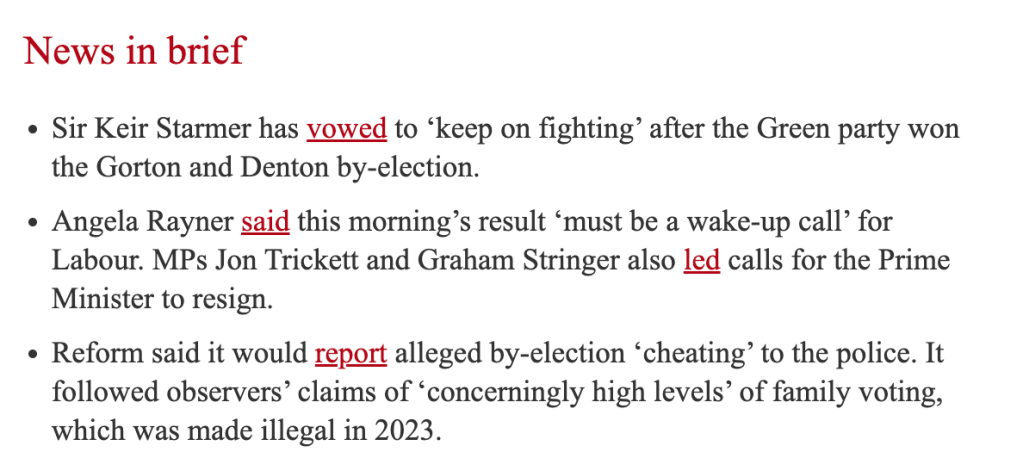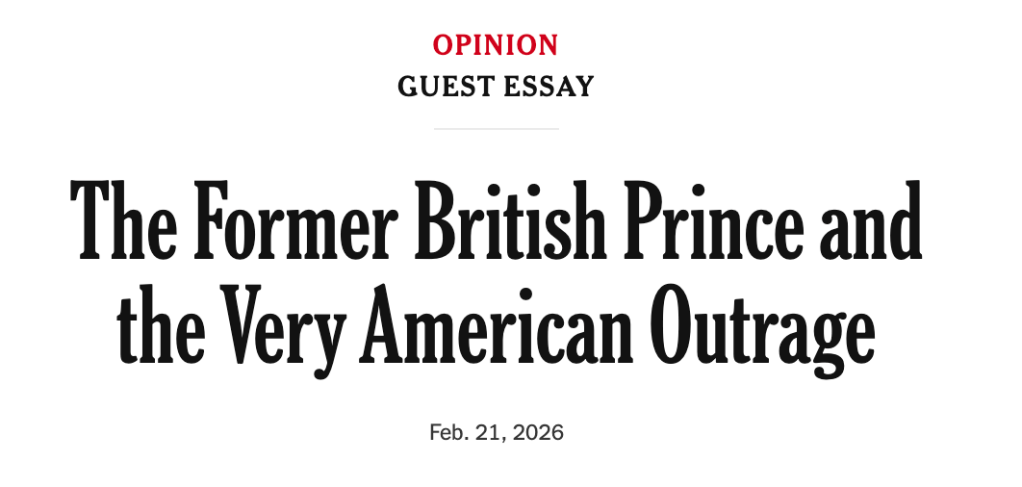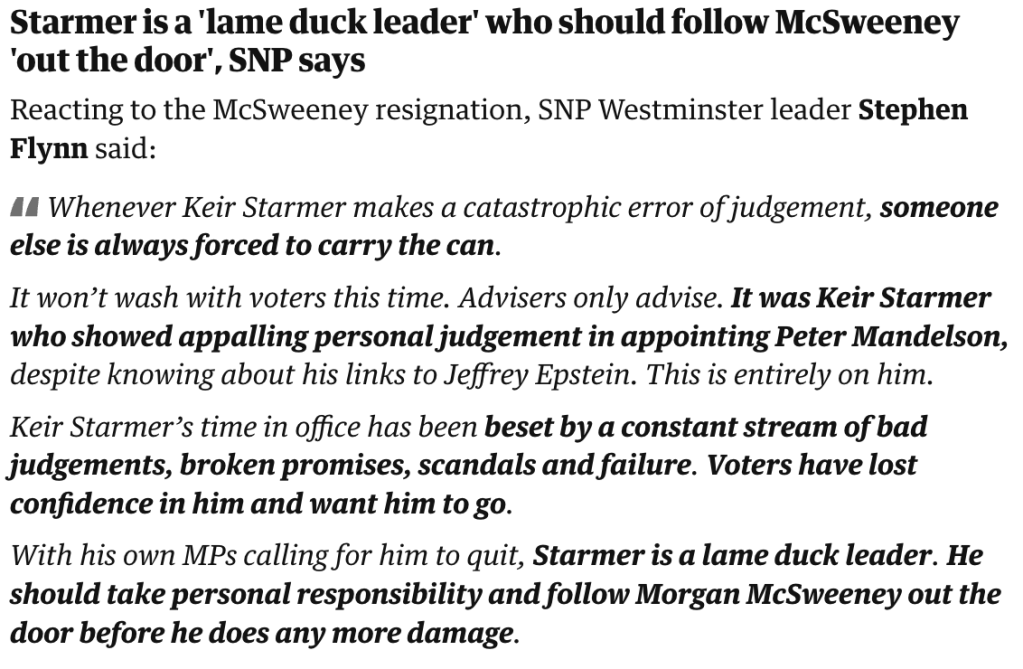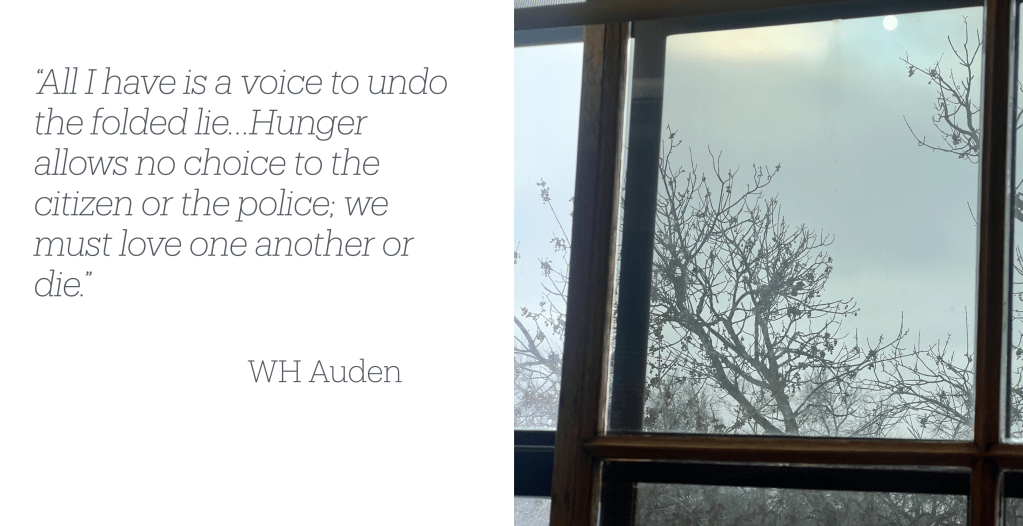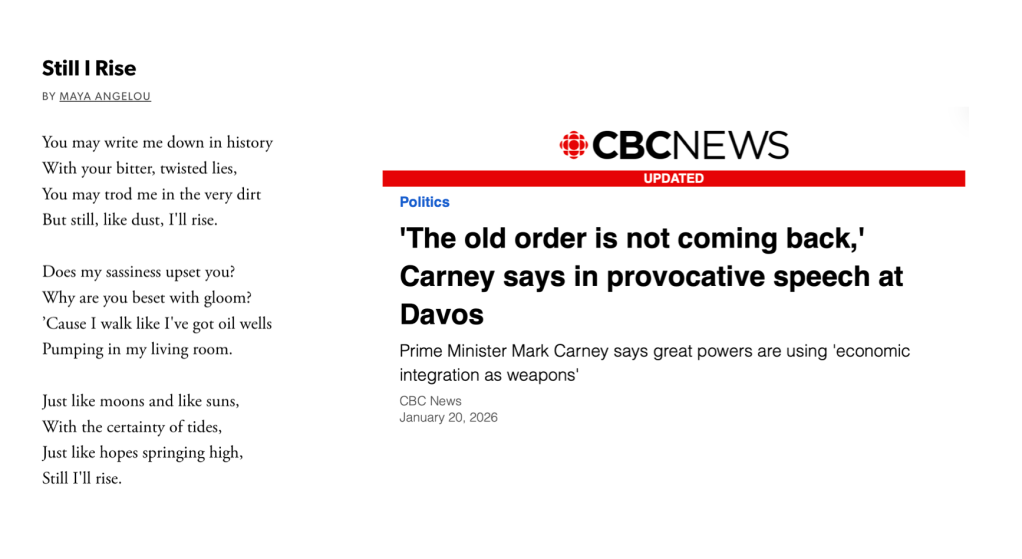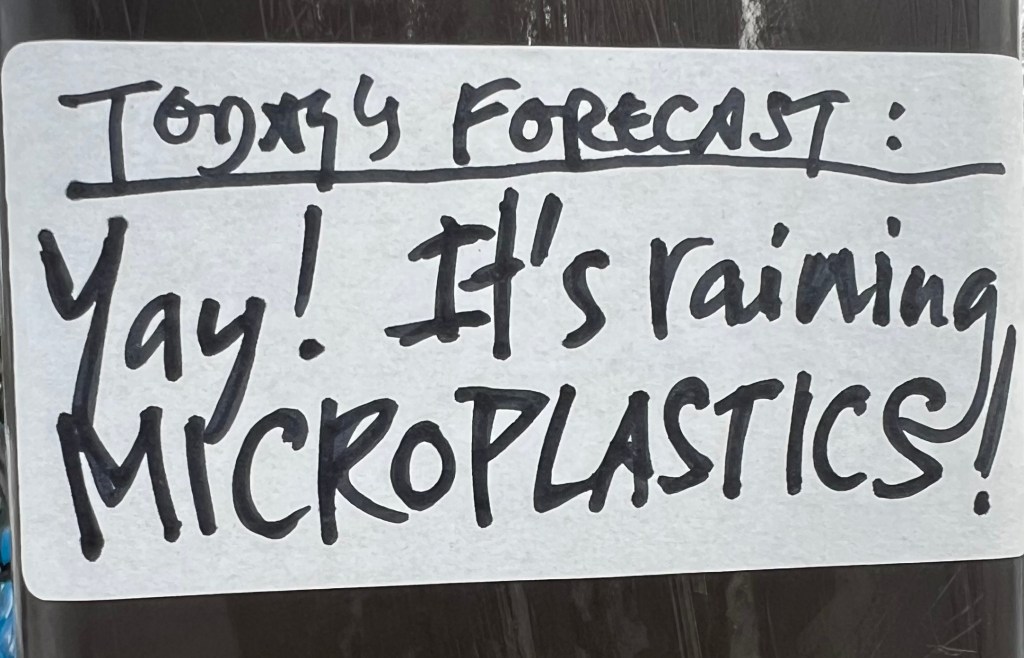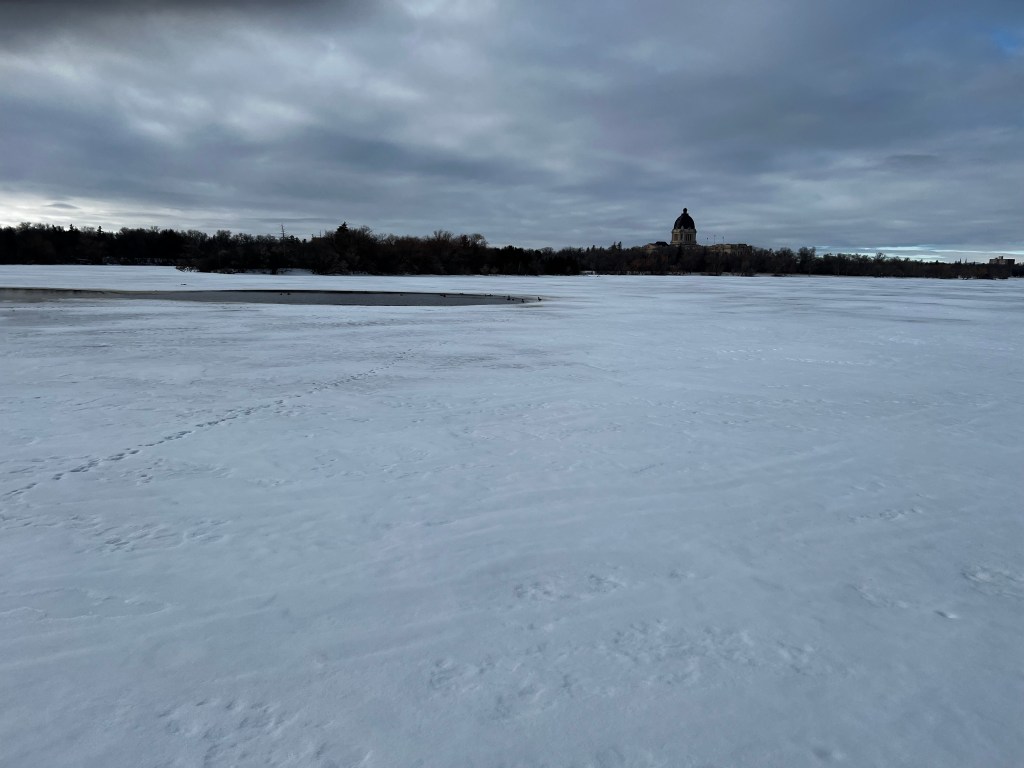I don’t agree with everything Thomas Friedman says, but this column provides some depth and context. As he states, in the Middle East, the opposite of autocracy is not always democracy. Further, focussing exclusively on the disintegration of human rights in Iran should not distract us from similar processes in other countries.
For me personally, I will mourn the violence and mourn the suffering, in the lead-up to the war and in the war itself. And I will continue to be saddened that we live in a world where the pain and suffering of the many creates prosperity for some. All across the globe, people behind closed doors are feverishly calculating how this pain and suffering will improve their bottom line.
Let’s work together for a better world.








